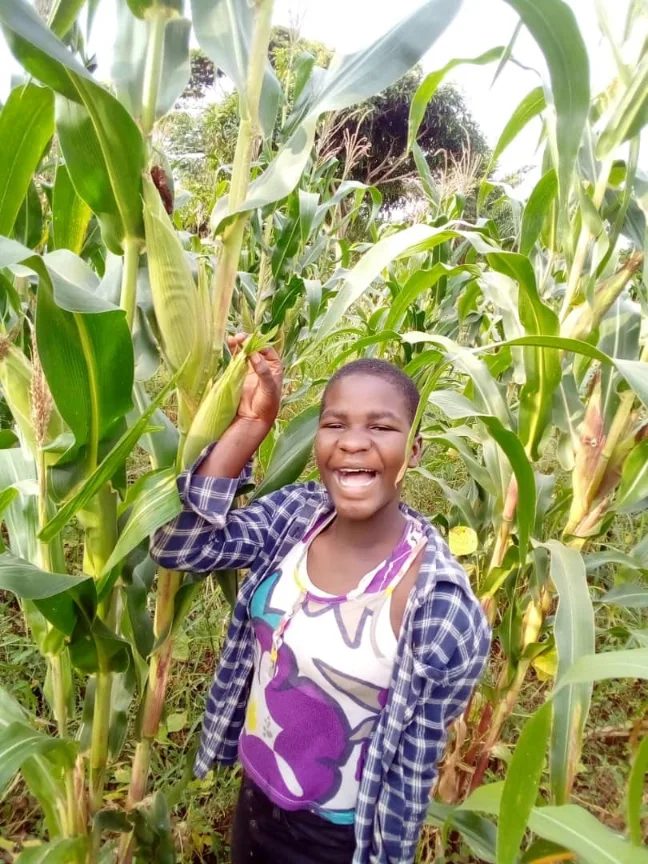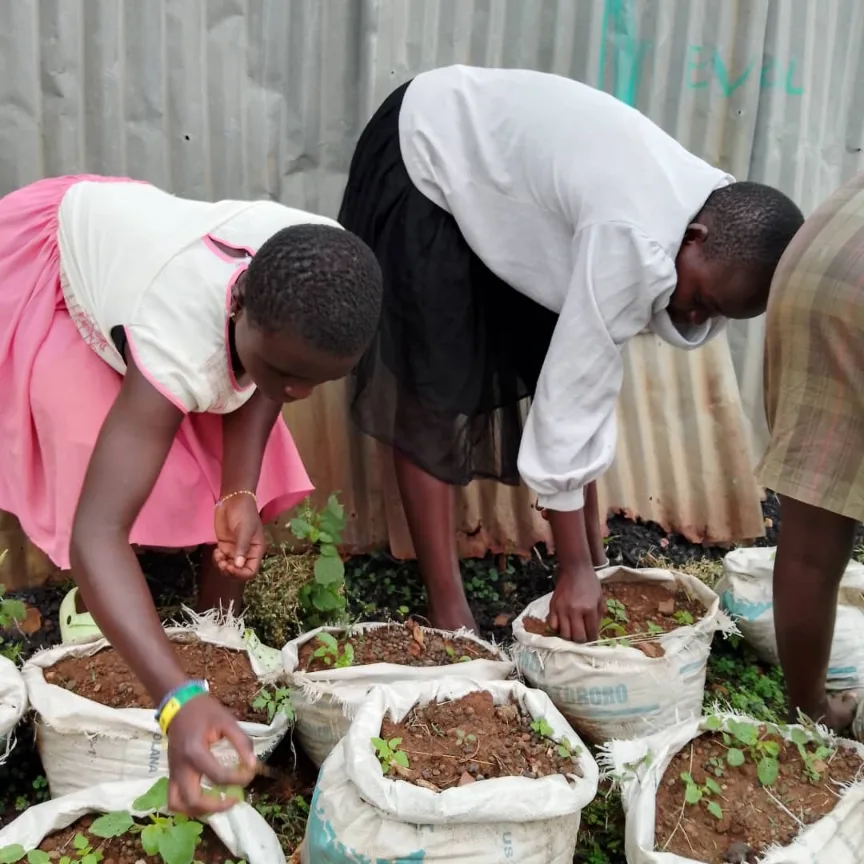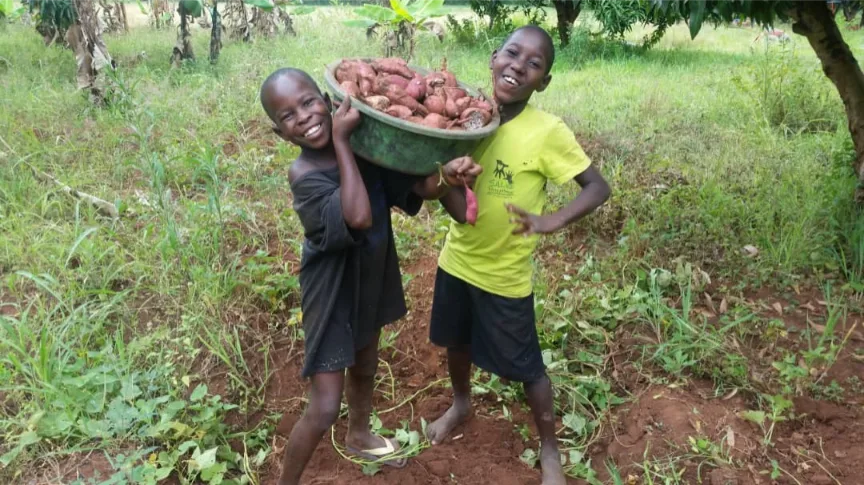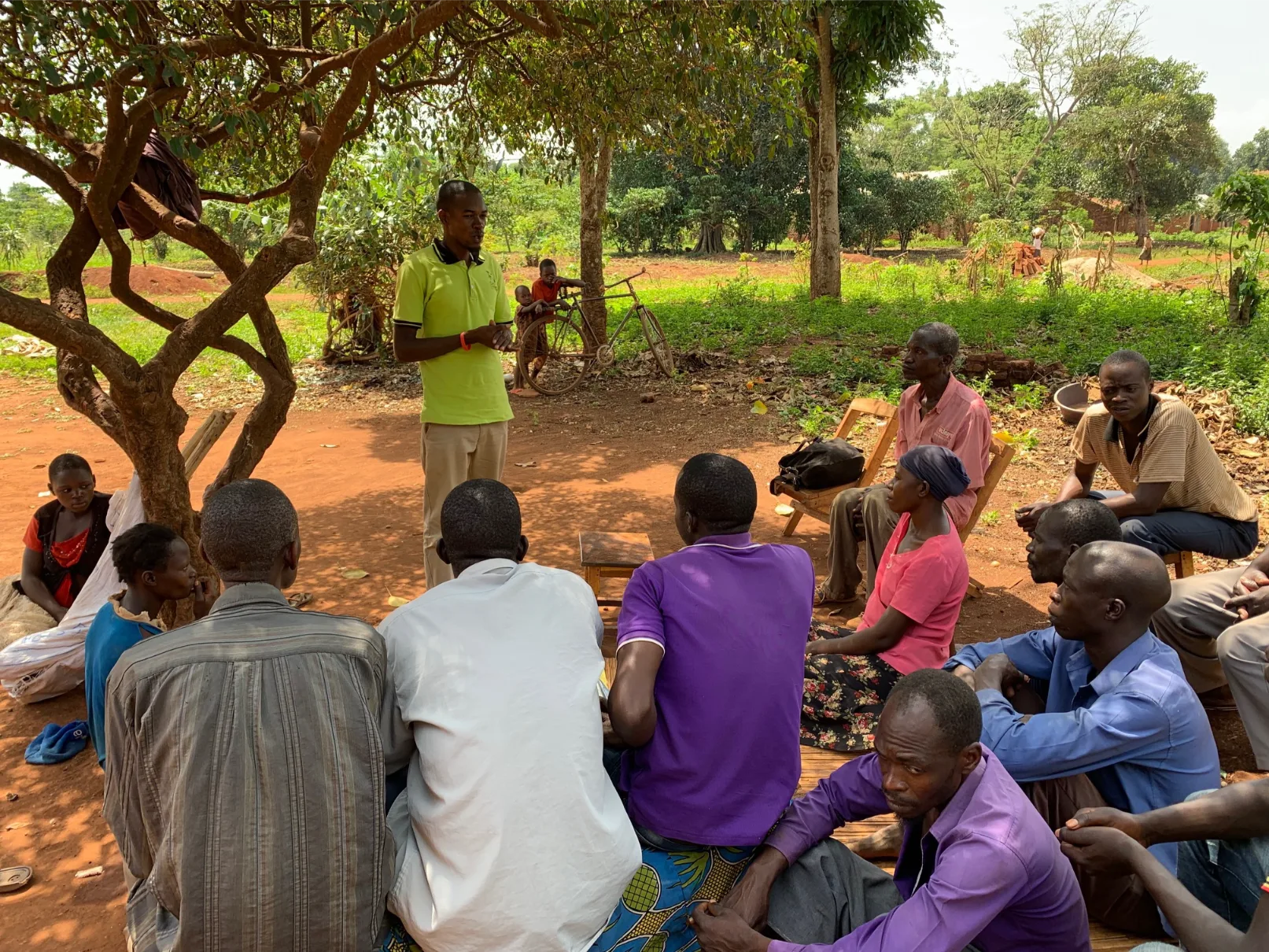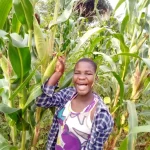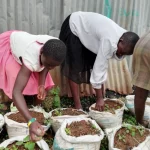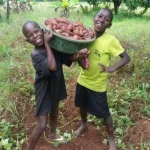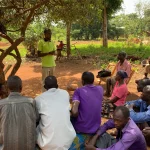Teacher: Joshua Ariho, Nicola Sansom

Joshua Ariho
Joshua is a permaculture teacher at S.A.L.V.E. International. He trains street-connected children and their families in permaculture principles (health, ecology, fairness and care) so they build sustainable futures. He is passionate about sharing organic agriculture knowledge as a way of combatting climate change. He has a certificate in plant pest and disease diagnosis from the Centre for Agriculture and Biosciences International. He also has organic farming qualifications from Kachwekano Zonal Agriculture Research Development Institute. He loves sharing his knowledge far and wide, most recently in Kenya where he trained families in permaculture skills with Help Change Lives organisation.
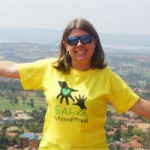
Nicola Sansom
Nicola is CEO of S.A.L.V.E. International, who have been supporting street connected children to return to education and their families in Uganda since 2008. She has been teaching since 2006 in both the formal and informal sector. She is an alumni Clore Social Leadership Fellow focussed on homelessness and how to measure impact in small organisations and a former Entrepreneur in Residence at Lancaster University Management School. She has worked and volunteered for a range of global organisations, including Oxfam GB, with an overarching focus on both sustainability and ensuring more equitable access to education.
Usefull links related to the Solution
Overview
This project trains street-connected children in permaculture techniques. Permaculture is a worldview that is often applied via an organic method of farming that is sustainable and can be used in any context. It involves working with the space and resources available. The skills gained from this training raise the status of the children involved so that when they are resettled the stigma of living on the streets is reduced. There are also nutritional and financial benefits to the training programme.
Theory of Change
Street-connected children are often associated with negative stereotypes when they are resettled home into a community. This project exists to upskill the children in permaculture techniques and provides them with some resources to begin farming; this can lead to providing the children and their families with nutritional food and a source of income. The skills help to ensure the children are valued in their communities and also position them as agents of change who have the skills and knowledge as well as the value of bringing about positive changes to farming practices in their communities. The effects of climate change are already being felt by the communities that the children come from across Uganda, so permaculture skills are especially valued because they take climate adaptation into account. It has been seen that when the resettled children grow food successfully non-family members of the community seek advice from the children creating a far-reaching ripple effect spreading permaculture practices through the community. Family permaculture education and outreach work is also carried out, where viable and where there is interest, to help embed these practices further.
Approach and Actions
Street-connected children are trained whilst living at S.A.L.V.E.’s purpose-built residential homes. A range of organic farming techniques are taught, from animal husbandry to fruit tree grafting techniques. Water conservation and soil improvement are a key focus as these are important skills for the context and are often poorly understood by local farmers. Produce produced on the farm is either used for feeding the children or is sold for profit. The produce enriches the diet of the children living at the site. The teaching techniques also provide benefits to the local community including increased tree cover leading to soil stability and increased shade. When suitable relocation family homes are found for the children an assessment of their farming needs is carried out and suitable resources are gathered to take to their new home. Permaculture and business education is provided to the family where appropriate; this ensures children are able to return to education while the family farm is managed effectively. The residential site is also used to educate the local community about sustainable building techniques – for example, plastic bottles filled with sand have been used instead of bricks in the construction of traditionally designed buildings.
Impact
The project has successfully taught over 1,000 children, families and community members. Permaculture techniques have therefore been introduced to a wide variety of communities. It is likely there will also have been, financial, nutritional and environmental positive impacts at the community level.
